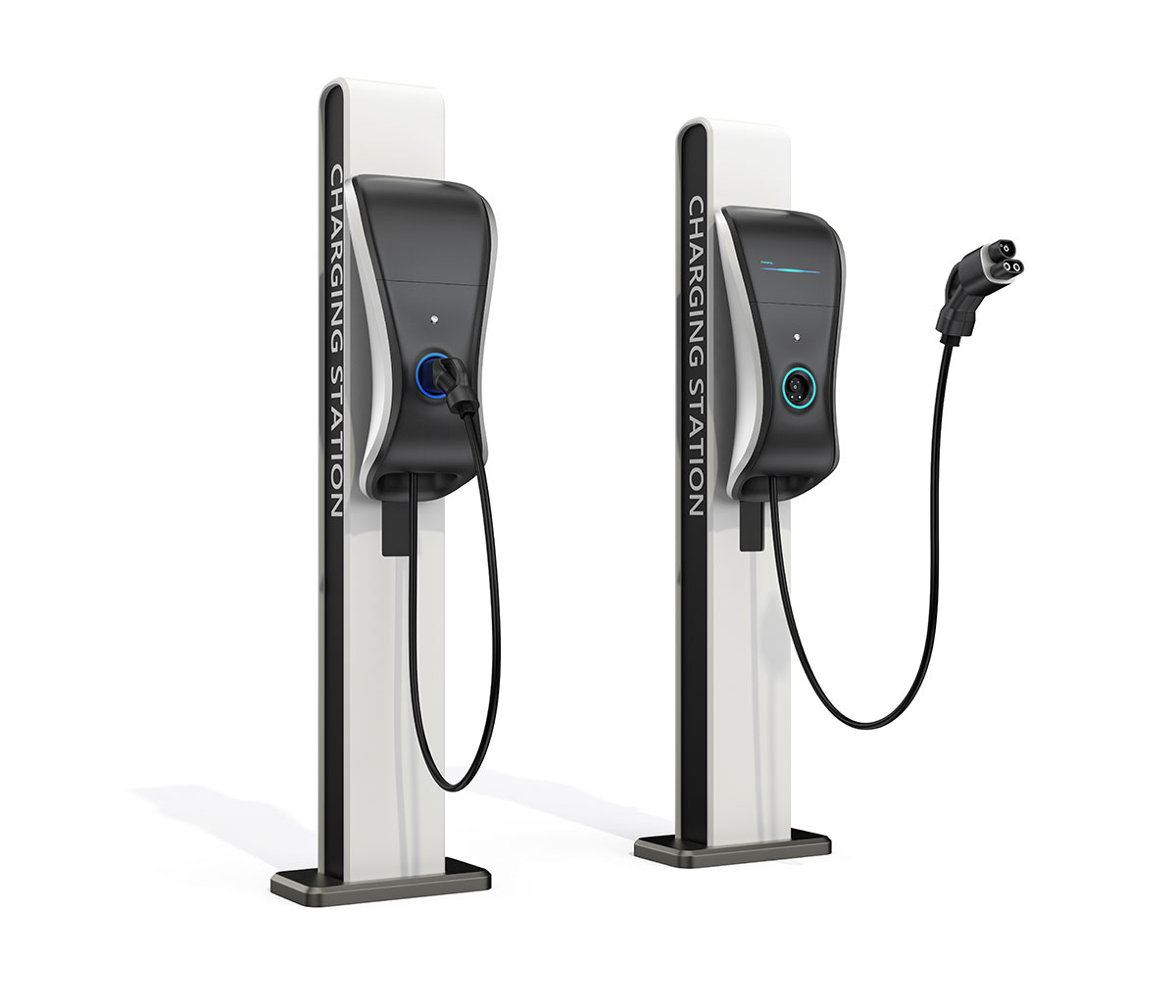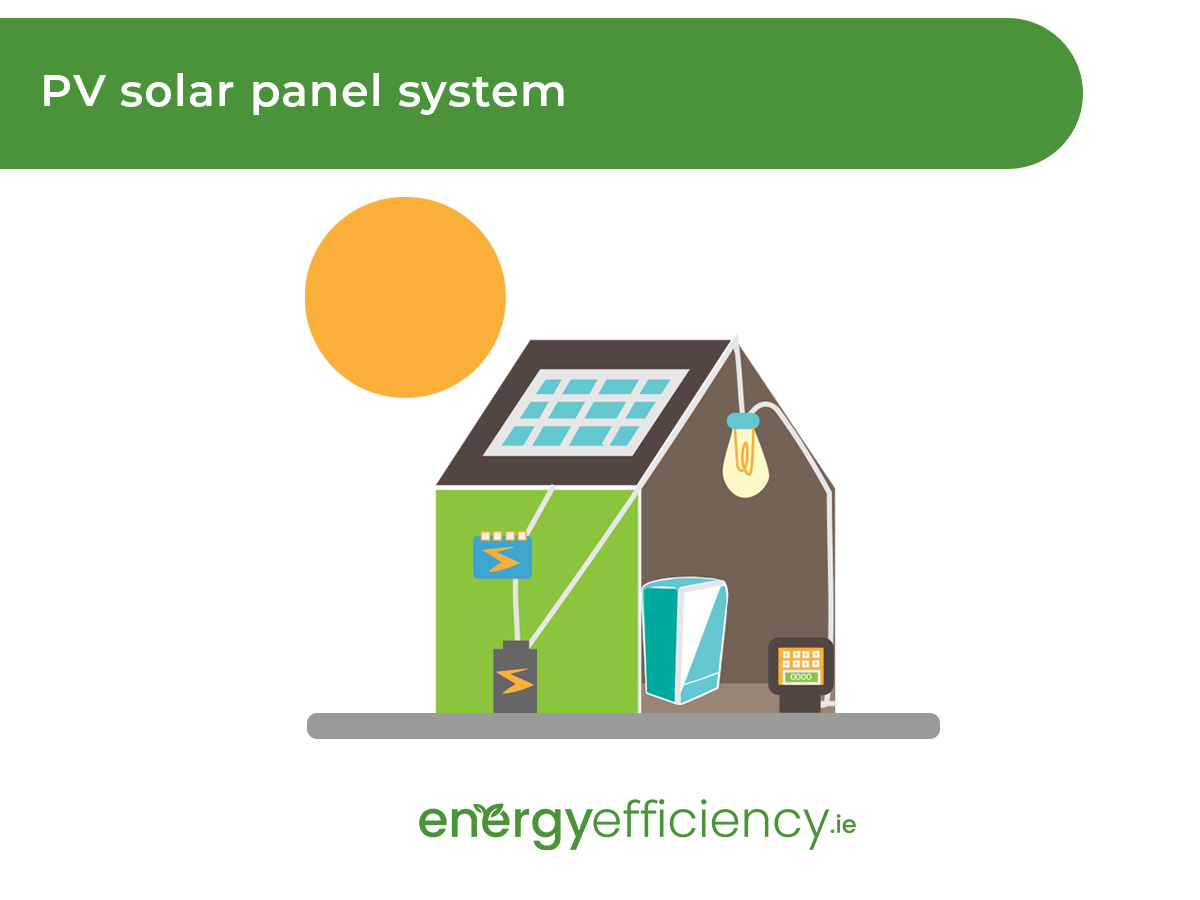Table of Contents
Solar Power and Electric Vehicles

Written by: Briain Kelly
Published: October 2, 2023
Last updated: October 21, 2025
Reading time: 3 mins
If you have an electric car or vehicle, then it can be expensive to charge with the price of electricity these days. If you’re looking for a way to save money, and reduce your carbon footprint, then you might consider using solar power.
In order to charge your electric vehicle with solar power, you will need to have solar panels set up at your home, as well as a charging station.
A solar system will typically consist of solar photovoltaic (PV) panels installed on the rooftop of your home, which are then wired into your electrical grid so that their power can be used for light, heat, or charging an electric vehicle.
Most residential solar panels these days have a power output ranging somewhere between 300 – 450 Watts.
An average solar PV system for a mid-sized house would generally consist of around 10 panels, generating just over 4 kilowatts of electricity.
The amount of electricity produced by your solar PV system will vary depending on how many solar panels you have installed, their efficiency, and the hours of sunlight you receive in the day among other factors.
How much Electricity do Electric Vehicles Need
The average battery capacity of electric vehicles these days is approximately 70kWh, with different models and brands ranging in size anywhere from 40kWh to 120kWh at the very high end of the scale.
However, it is worth noting that for a great many drivers, it is unlikely that they will be using up the entire capacity of a fully charged battery in a single day. This means that only a portion of this will need to be filled when you hook your car up to the charger at home.
Smart Systems and Excess Energy
When getting a solar PV system installed on your home today, it is also considered advisable to get a smart monitoring system. Not only will this help you ensure that your solar panels are operating efficiently and in good working order, it can also help determine how your electricity is used.
Your system can be set up so that excess electricity created when your solar PV array is generating more power than is being used in your home is diverted to peripherals. This might be a solar battery, immersion heater, or it could be sent to a plugged-in electric vehicle.
In this way your vehicle could use solar energy to charge during the day, and be set to finish charging from grid power at night time, using the cheaper rates.
However, the majority of people will have their car charging primarily in the evening or night-time. With that, in order to make use of the solar electricity generated during the day, you’re going to need to invest in a battery storage system.
Solar Energy Storage Systems allow for the storage of electricity produced by your solar panels which is not used at the time it is generated in a battery. Otherwise, excess electricity is generally pumped back into the grid.
This means that if you are away from the house during the day, at work or elsewhere, you can still use your solar panels to charge your EV.
Solar Carports
Solar Carports are a fixed canopy structure with solar panels on top which can be installed at your home, at public car parks, businesses etc.
This can be an easy way to provide power for Electric Vehicle charging, and make use of solar power with less wiring to be done. It’s easy to connect an EV charger to the solar panels which will be located just above it.
If you only want solar power for your EV, and not to otherwise power your home, it can also save effort and money since it doesn’t have to be integrated with your home grid. There’s also no risk of damage to your rooftop from solar panels installed there.

Are Solar Panels Worth is for Electric Vehicles
While solar PV might not be the most efficient way to charge an electric vehicle, they are definitely worthwhile for the amount of money they can potentially save.
With domestic electricity prices currently still high for most homeowners, the free power generated by solar panels can definitely take a chunk out of your energy bills. This is true for people using them for EVs and otherwise.
Solar PV systems typically have a payback period of seven to ten years, and are considered to have an operational lifespan of approximately 25 – 30 years. This means that you can have decades of completely free electricity.
The only thing putting people off getting solar panels installed is the up front investment cost. You have to take into consideration whether you’re willing to take that hit to the wallet if you’re only thinking of having solar installed for an EV.

Get a quote for solar energy today
Take the Energy Efficiency online assessment to get a free quote on your home solar set up.
Find out how much you can save today. Join the thousands of Irish home owners who are saving on their energy bills.
Solar Power and Electric Vehicles
Published: October 2, 2023
Last updated: October 21, 2025

Written by: Briain Kelly
Reading time: 3mins
If you have an electric car or vehicle, then it can be expensive to charge with the price of electricity these days. If you’re looking for a way to save money, and reduce your carbon footprint, then you might consider using solar power.
In order to charge your electric vehicle with solar power, you will need to have solar panels set up at your home, as well as a charging station.
A solar system will typically consist of solar photovoltaic (PV) panels installed on the rooftop of your home, which are then wired into your electrical grid so that their power can be used for light, heat, or charging an electric vehicle.
Most residential solar panels these days have a power output ranging somewhere between 300 – 450 Watts.
An average solar PV system for a mid-sized house would generally consist of around 10 panels, generating just over 4 kilowatts of electricity.
The amount of electricity produced by your solar PV system will vary depending on how many solar panels you have installed, their efficiency, and the hours of sunlight you receive in the day among other factors.
How much Electricity do Electric Vehicles Need
The average battery capacity of electric vehicles these days is approximately 70kWh, with different models and brands ranging in size anywhere from 40kWh to 120kWh at the very high end of the scale.
However, it is worth noting that for a great many drivers, it is unlikely that they will be using up the entire capacity of a fully charged battery in a single day. This means that only a portion of this will need to be filled when you hook your car up to the charger at home.
Smart Systems and Excess Energy
When getting a solar PV system installed on your home today, it is also considered advisable to get a smart monitoring system. Not only will this help you ensure that your solar panels are operating efficiently and in good working order, it can also help determine how your electricity is used.
Your system can be set up so that excess electricity created when your solar PV array is generating more power than is being used in your home is diverted to peripherals. This might be a solar battery, immersion heater, or it could be sent to a plugged-in electric vehicle.
In this way your vehicle could use solar energy to charge during the day, and be set to finish charging from grid power at night time, using the cheaper rates.
However, the majority of people will have their car charging primarily in the evening or night-time. With that, in order to make use of the solar electricity generated during the day, you’re going to need to invest in a battery storage system.
Solar Energy Storage Systems allow for the storage of electricity produced by your solar panels which is not used at the time it is generated in a battery. Otherwise, excess electricity is generally pumped back into the grid.
This means that if you are away from the house during the day, at work or elsewhere, you can still use your solar panels to charge your EV.
Solar Carports
Solar Carports are a fixed canopy structure with solar panels on top which can be installed at your home, at public car parks, businesses etc.
This can be an easy way to provide power for Electric Vehicle charging, and make use of solar power with less wiring to be done. It’s easy to connect an EV charger to the solar panels which will be located just above it.
If you only want solar power for your EV, and not to otherwise power your home, it can also save effort and money since it doesn’t have to be integrated with your home grid. There’s also no risk of damage to your rooftop from solar panels installed there.

Are Solar Panels Worth is for Electric Vehicles
While solar PV might not be the most efficient way to charge an electric vehicle, they are definitely worthwhile for the amount of money they can potentially save.
With domestic electricity prices currently still high for most homeowners, the free power generated by solar panels can definitely take a chunk out of your energy bills. This is true for people using them for EVs and otherwise.
Solar PV systems typically have a payback period of seven to ten years, and are considered to have an operational lifespan of approximately 25 – 30 years. This means that you can have decades of completely free electricity.
The only thing putting people off getting solar panels installed is the up front investment cost. You have to take into consideration whether you’re willing to take that hit to the wallet if you’re only thinking of having solar installed for an EV.

Get a quote for solar energy today
Take the Energy Efficiency online assessment to get a free quote on your home solar set up.
Find out how much you can save today. Join the thousands of Irish home owners who are saving on their energy bills.
Solar Energy Saves Households Thousands in Electricity Costs
Take our 2-minute questionnaire and find affordable solar options to suit your budget and lifestyle.


